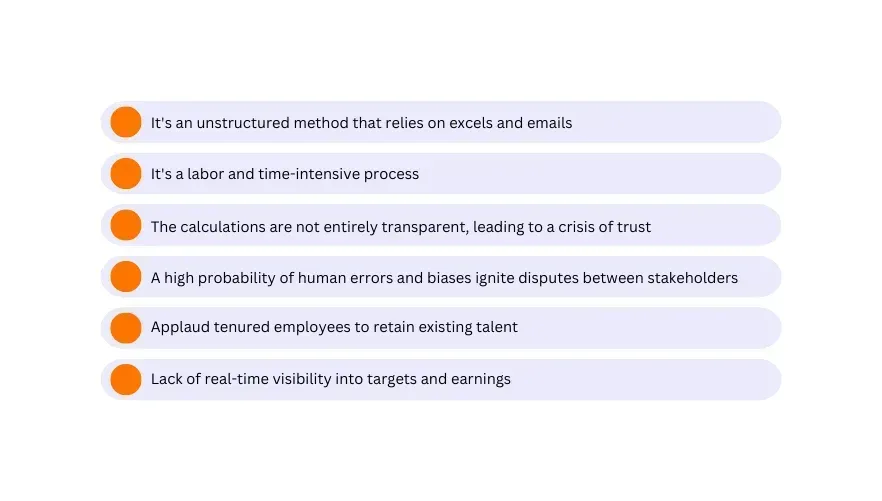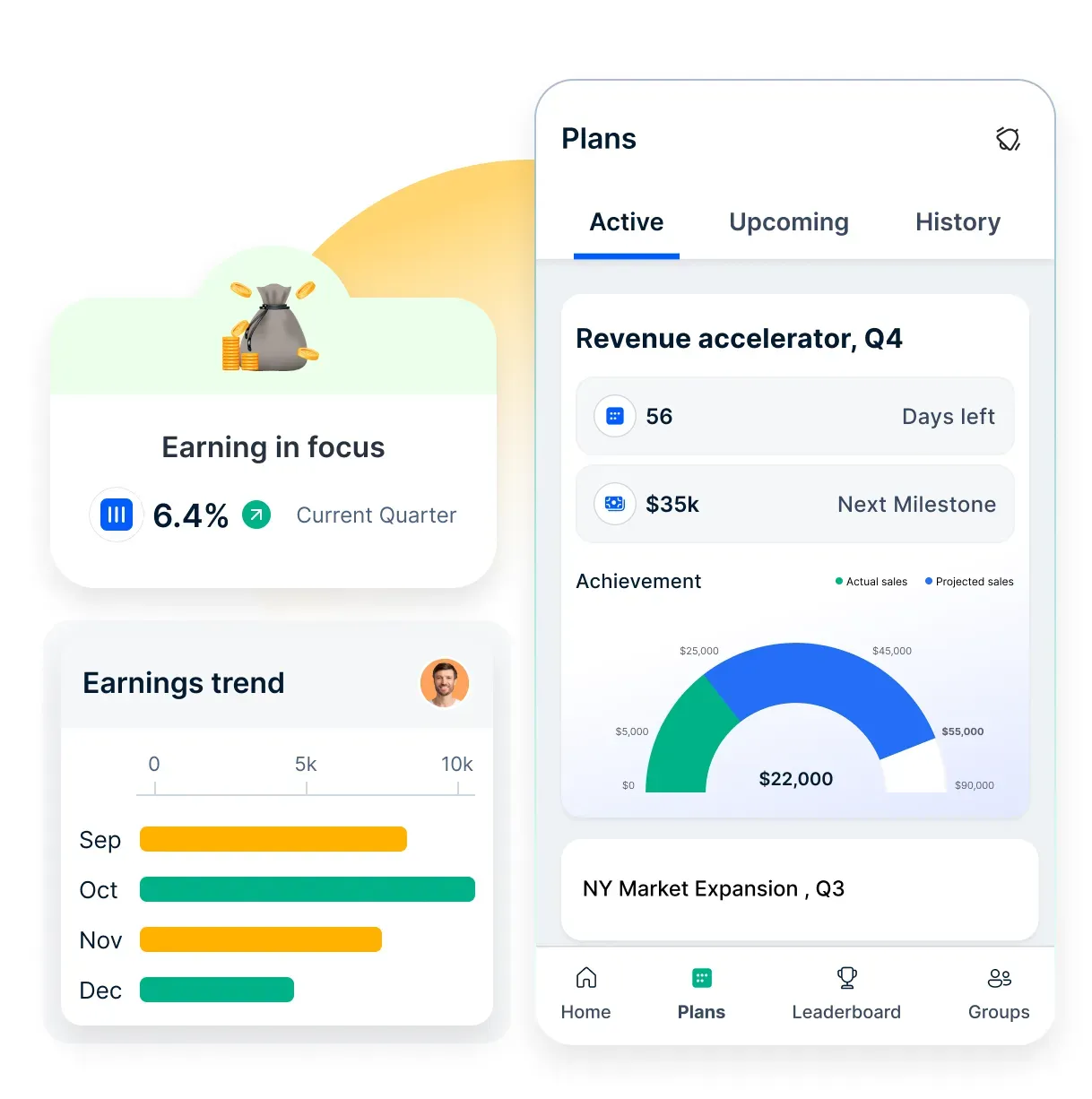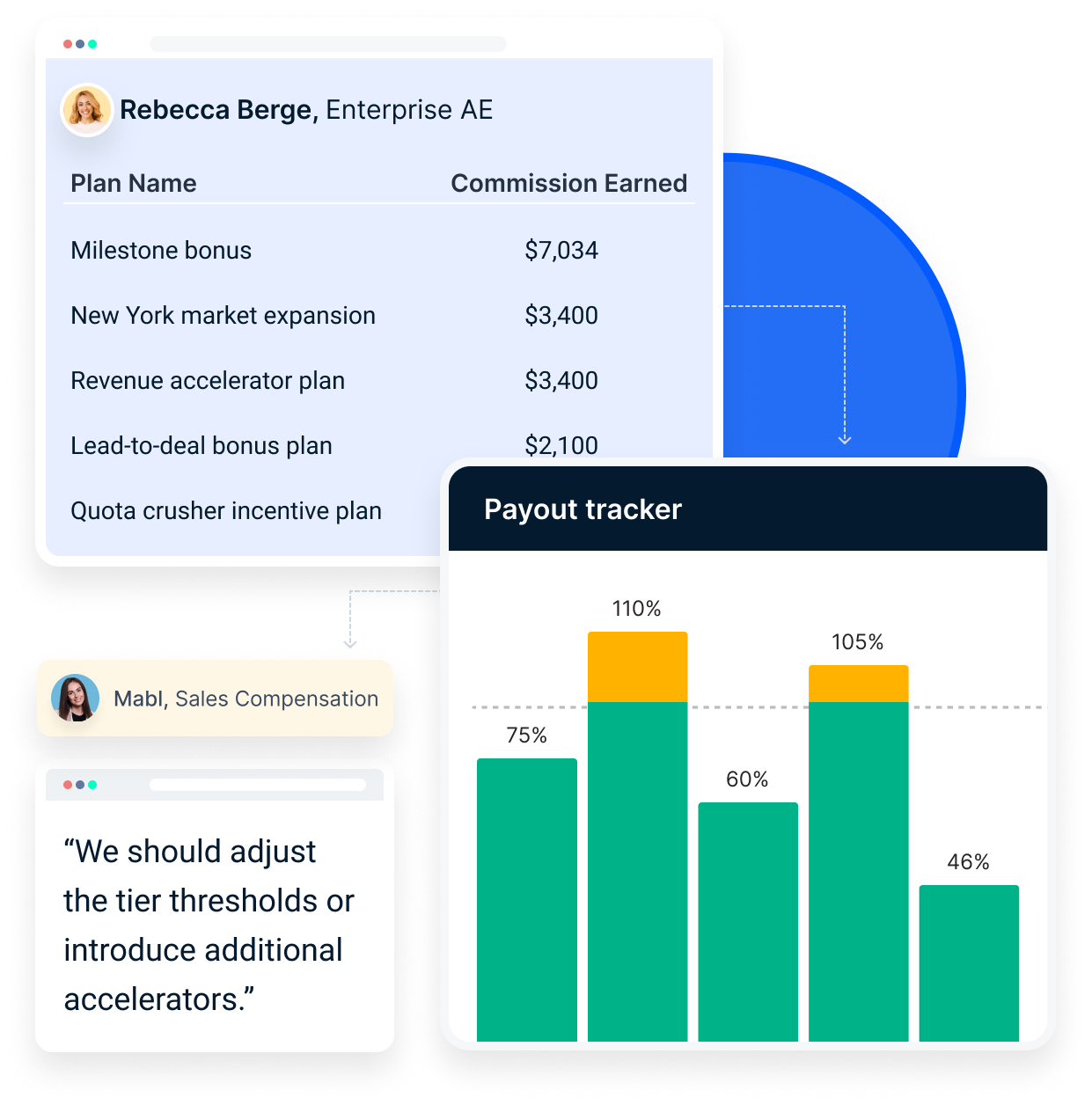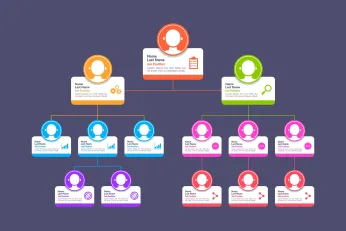Nesta página
Incentive programs have long been around to engage, inspire and scale sales and channel partner growth by motivating the desired sales actions on a larger scale. Despite its variable nature, we cannot deny its direct impact on the organization's success.
Quality incentive programs can increase sales performance by as much as 44%. (Source: IRF)
Most companies employ financial and non-financial incentives to achieve the desired sales performance output.
However,most organizations lack the technology or knowledge to create correctly structured programs to manage and measure their incentive calculations. This leads to a skewed picture of the total performance output from sales and an inaccurate measurement of incentives ROI. Additionally, the largely manual nature of the calculations makes real-time analysis almost impossible.
This article will address the importance of structuring your incentives program and investing in an Incentive Automation Platform to improve your bottom line.
Challenges posed by a manual incentive computation and management process
Unlike CTC, business results drive incentives, and their calculation depends on the sales profit. At the fundamental level, the formula for calculating a sales-based incentive payment is as follows:

As the organization grows, other factors, including commissions, bonuses, etc., influence this computation. This makes it difficult to scale the calculations.
Most incentive programs rely on a manual computation process where one or two designated HR resources have to use excel sheets and emails to calculate incentive compensation for each sale and channel partner representative. Some drawbacks of manual incentive calculation are:

3 Reasons why you should think of automating incentive compensation plan
There are three reasons why you should think of automating incentive compensation. Read on to know them.
1. Forecasting with sales automation software
One of the most compelling reasons to invest in sales automation software is its ability to improve forecasting accuracy. By consolidating sales performance data into a single system, businesses gain a real-world, historical view of rep performance—beyond just the current quarter.
This enables sales leaders to analyze key aspects such as:
- How sales reps’ skills evolve over time
- Their performance when assigned to new territories
- The accuracy of their past pipeline assessments
- Additional insights that enhance current sales forecasts
Traditional forecasting methods require significant manual effort, making these analyses time-consuming—often preventing them from happening at all. With incentive compensation business automation, sales teams can access these insights instantly, allowing them to refine strategies and drive more predictable revenue outcomes. Improved forecasting benefits the entire organization by optimizing resource allocation and ensuring smarter decision-making.
Compass eliminates manual errors and delays by automating incentive compensation management (ICM) tasks. With automated calculations, pre-built templates, and zero manual work, Compass ensures accurate compensation forecasting. The platform’s predictive analytics, benchmarking, and plan effectiveness insights help organizations refine their sales strategies based on data, not guesswork. Additionally, Compass offers territory reports and payout trend analysis, allowing businesses to make informed decisions about sales forecasting with complete confidence.
2. Managing comp expenses efficiently
Finance teams are key allies when implementing incentive compensation automation, as it directly impacts cost efficiency. Businesses, on average, allocate 10% of annual revenue to compensation, with Gartner reporting that 3-5% of sales compensation expenses result in overpayments
With an automated incentive program, companies can identify and eliminate these overpayments, ensuring commissions are accurately distributed. This not only reduces unnecessary expenses but also improves financial transparency, enabling businesses to reinvest saved revenue into growth initiatives.
Compass provides organizations with powerful incentive compensation plan modeling, allowing them to test draft compensation plans before implementation. By running what-if scenario modeling across roles, businesses can ensure commission structures align with revenue goals. The platform’s cost-of-sales analysis, investment vs. revenue insights, and plan comparison tools enable companies to adjust their incentive strategies in real-time, eliminating overpayments and maximizing profitability.
3. Enhancing HR efficiency and sales retention
Sales reps may stay silent about commission errors in their favor, but they are quick to raise concerns when underpaid. In some organizations, disputes over commissions take up hours of managers’ time daily, creating friction between sales teams and leadership.
This mistrust extends to human resources as well. According to the 2021 State of Global Enterprise Sales Performance Report, voluntary sales turnover increased in 2020, with 58% of companies experiencing higher turnover than in 2019. While industry changes contributed to this trend, a lack of trust in compensation accuracy also played a role.
High turnover places a heavy burden on HR teams, forcing them into a constant cycle of recruiting and onboarding. Workable reported that in 2020, the average sales role took 48 days to fill. A company experiencing the industry average 27% turnover rate faces ongoing hiring challenges. By leveraging incentive automation to ensure fair and accurate compensation, businesses can reduce turnover to around 15%, significantly decreasing recruitment efforts and allowing HR to focus on broader organizational needs.
Compass fosters a collaborative team culture by providing transparent incentive plans and a structured in-app dispute management system, reducing escalations and ensuring reps receive accurate payments. By eliminating payout errors, Compass strengthens trust between sales reps and management, decreasing turnover rates. Additionally, the platform enables organizations to collect real-time feedback on compensation plans, refine structures based on rep input, and ensure alignment with market trends. With a streamlined incentive management system, HR teams can focus on recruiting top talent while reducing time spent resolving compensation disputes.
Investing in incentive compensation automation streamlines financial operations, enhances forecasting accuracy, and fosters trust between sales teams and leadership—ultimately driving better performance and stronger business growth.
The advantages of investing in an incentive automation platform
Today, the rising popularity of Incentive automation has many SalesOps and RevOps Leaders questioning the need to invest in costly software to automate commissions vs. continuing to deploy one or two resources to calculate them manually.
To answer this, we need to look at the rise of incentives automation (IA) as a distinctive cloud-based solution combining multiple modules into a single behavior-based strategy that influences sales performance globally by accelerating time to revenue.
Incentives Automation (AI) today is taking incentive programs from intuition to a science, ensuring brands deploy the right mix, level, and cadence of incentives to improve revenue and profit from the channel. (Source: LinkedIn)
Most incentive automation platforms today use learning algorithms to determine the range and levels of incentives based on individual profiles and behavioral histories. By analyzing the sales and channel partner audience in real-time, an incentive automation platform can calculate the right amount and kind of incentive.
Instead of replacing the resources that manage commission and incentive calculation, this AI-based computation can become a powerful tool to empower your existing resources to do more strategic work using real-time data and insights.
In other words, an incentive automation platform can empower everyone to become revenue-driving champions, from sales and channel partner teams to sales leaders, commission managers, and finance teams.
How incentive automation can empower sales and channel partners?
Here is how incentive automation via Compass can help empower sales and channel partners:
How incentive automation can empower managers?
Implementing incentive automation through Compass equips managers with the tools needed to drive team performance and boost revenue.

By leveraging an automated incentive program, managers can streamline processes, set clear goals, and use real-time insights to keep their teams motivated.
Monitor team progress and maximize productivity
With real-time tracking, managers can set achievable targets and use incentive compensation automation to ensure their teams stay motivated. This approach leads to 10X sales productivity and revenue growth, making it one of the key reasons to invest in sales automation software.
Reduce disputes with transparency
Compass allows managers to create performance-driven incentive structures, ensuring clarity in commission calculations and potential earnings for every closed deal. A transparent system helps in reducing conflicts and maintaining trust within the sales team.
Gain a competitive edge with real-time insights
By continuously refining incentive compensation business automation, managers can adapt their automated incentive program to match evolving market conditions. Compass enables managers to analyze revenue trends and replicate successful commission models, ensuring sustained business growth.
How incentive automation can empower administrators?
For administrators, incentive automation simplifies commission management and ensures efficiency at scale.

With Compass, they can monitor sales performance, automate payouts, and measure the impact of incentive structures.
Ensure on-time payout disbursement
Eliminating spreadsheets and implementing incentive compensation automation ensures that sales reps receive timely, error-free payouts. This removes payout uncertainty, allowing reps to focus solely on selling.
Champion greater revenue growth
When companies invest in a good incentive automation platform, the main aim is to benefit the sales department. However, the benefits trickle down to the rest of the company - maximizing profits, increasing market share, improving forecasting, and overall data analysis.
Ultimately, it becomes a weapon empowering everyone, from sales and channel partner teams to sales managers and commission managers, to champion greater revenue growth. Schedule a call with Compass now to know how Compass can be your saviour.
FAQs
Q: How does incentive compensation work?
A: Incentive compensation rewards employees based on their performance, typically through commissions, bonuses, or profit-sharing. It aligns employee goals with business objectives, motivating them to achieve specific targets.
Q: What is an ICM tool?
A: An Incentive Compensation Management (ICM) tool automates the calculation, tracking, and distribution of incentive pay. It ensures accuracy, transparency, and efficiency in managing commission plans.
Q: What are the top 3 employee desired incentives?
A: The top three incentives employees value most are:
- Performance-based bonuses – Monetary rewards for exceeding targets.
- Flexible work options – Remote work or flexible schedules.
- Career growth opportunities – Training, mentorship, and promotions.
Q: What is an example of an incentive compensation plan?
A: A common example is a sales commission plan, where sales reps earn a percentage of revenue from closed deals. For instance, a company may offer a 5% commission on every sale, with additional bonuses for exceeding sales quotas.













